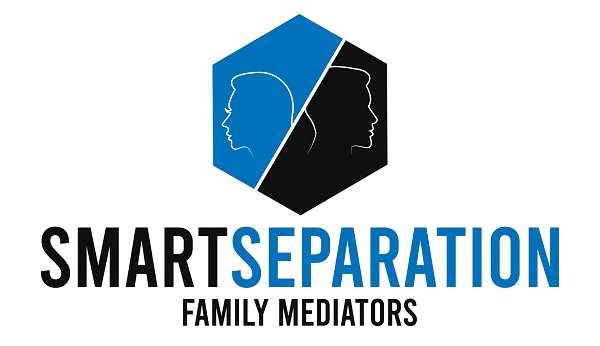What Family Law Mediation Is and Why It Matters
Family law mediation is a voluntary process where separating or divorcing couples work with a neutral third party — the mediator — to resolve disputes outside of court. In Toronto, mediation is guided by Ontario’s Family Law Act and related legislation, which encourage settlement-focused approaches that keep families out of costly and adversarial court battles.
Unlike litigation, where a judge makes binding decisions, mediation gives both parties control over the outcome.
Mediation offers several benefits for Toronto families:
- Reduced stress – Sessions take place in a private, supportive environment rather than a courtroom.
- Confidentiality – Discussions remain private, protecting sensitive family and financial information.
- Quicker resolutions – Couples often reach agreements faster than they would through lengthy court proceedings.
- Lower legal costs – Because mediation avoids prolonged litigation, families save significantly on lawyer and court fees.
The Legal Framework for Mediation in Ontario
Family law mediation in Toronto operates within the legal framework set out by Ontario’s Family Law Act and Canada’s Divorce Act.
While mediation is flexible and collaborative, the agreements reached must still comply with Ontario’s family law requirements to be legally valid. A mediated settlement cannot override statutory obligations, such as the Federal Child Support Guidelines, and must be written in clear, enforceable terms.
Another critical element is the requirement for independent legal advice (ILA). Before signing a mediated separation agreement, both parties are strongly advised to consult with their own lawyers.
This balance — voluntary participation with legal safeguards — makes mediation both a practical and legally sounds option for many Toronto families.
The Mediation Process Step by Step
Mediation in Toronto follows a structured process designed to keep discussions productive and fair. While every mediator may have a slightly different style, most follow these key stages:
- Intake and Screening
The process usually begins with the mediator meeting each party separately. This step helps determine whether mediation is suitable for the situation.
- Joint Mediation Sessions
If both parties agree to proceed, the mediator facilitates joint sessions. The mediator keeps the discussion focused, neutral, and respectful while ensuring both parties have a voice.
- Drafting the Agreement
Once progress is made, the mediator prepares a Memorandum of Understanding (MOU) or a draft separation agreement.
- Legal Review and Finalization
Before an agreement becomes binding, both spouses should seek independent legal advice (ILA). Their lawyers review the draft to confirm it complies with Ontario law, protects their rights, and is enforceable in court if necessary. After revisions (if any), the agreement is signed, giving the parties a legally recognized resolution.
Role of the Mediator in Toronto
The mediator plays a central role in ensuring that the process is both fair and productive. In Toronto, family mediators are trained professionals who follow strict ethical and legal standards to guide couples through sensitive discussions.
A mediator’s primary responsibility is to keep discussions neutral and respectful. Unlike a judge or arbitrator, the mediator does not take sides or make decisions. Instead, they create an environment where both spouses feel heard and can express their concerns openly.
Mediators also work to ensure that both parties have an equal opportunity to participate. This includes managing any power imbalances, giving each spouse the chance to speak, and making sure that no one dominates the conversation.
Confidentiality is also essential. In Toronto, mediators are bound by professional standards and Ontario law to maintain privacy, meaning what is discussed in mediation cannot be used in court except in very limited circumstances (such as a risk of harm to a child).
Using Mediation for Parenting and Financial Issues
Family mediation is especially valuable when it comes to resolving parenting and financial matters, two of the most sensitive areas in separation and divorce.
Parenting Plans
Under Ontario’s Children’s Law Reform Act, parents are encouraged to create parenting plans that reflect the best interests of their children.
Child and Spousal Support
Mediators also assist with calculating financial obligations. Using the Federal Child Support Guidelines and Ontario-specific rules, mediators can guide parents through determining table amounts for child support, as well as how to share special or extraordinary expenses (such as childcare, medical, or extracurricular costs). For spousal support, mediators may use the Spousal Support Advisory Guidelines (SSAGs) to help couples explore fair options, always ensuring that the terms remain compliant with Ontario law.
Property Division and the Matrimonial Home
When financial issues extend beyond support, mediation can address property division under the Family Law Act. This includes working through equalization of net family property, division of pensions, and handling debts. The matrimonial home, which receives special treatment under Ontario law, is often a central focus.
Why Choose Mediation in Toronto
Toronto offers families a wide range of resources and advantages when it comes to choosing mediation as a path forward. The city has a strong network of accredited family mediators, many of whom are members of the Ontario Association for Family Mediation (OAFM).
Another strength in Toronto is the flexibility of mediation formats. Families can choose in-person sessions at mediation offices or court-connected facilities, online mediation using secure video platforms, or a hybrid approach that combines both.
Toronto’s cultural diversity also plays a key role. With families coming from many different backgrounds, cultural competence is critical in resolving disputes fairly. Mediators in Toronto often have experience working across cultures, ensuring that agreements respect traditions, communication styles, and family expectations.
For families in Toronto, mediation offers a practical, culturally sensitive, and legally supported way to resolve family disputes while protecting both emotional well-being and financial stability.
As an experienced family and divorce mediator in Toronto, I often write blogs to provide insights, tips, and resources on family mediation and divorce in Ontario. Follow my blog to stay informed and empowered during challenging times.



